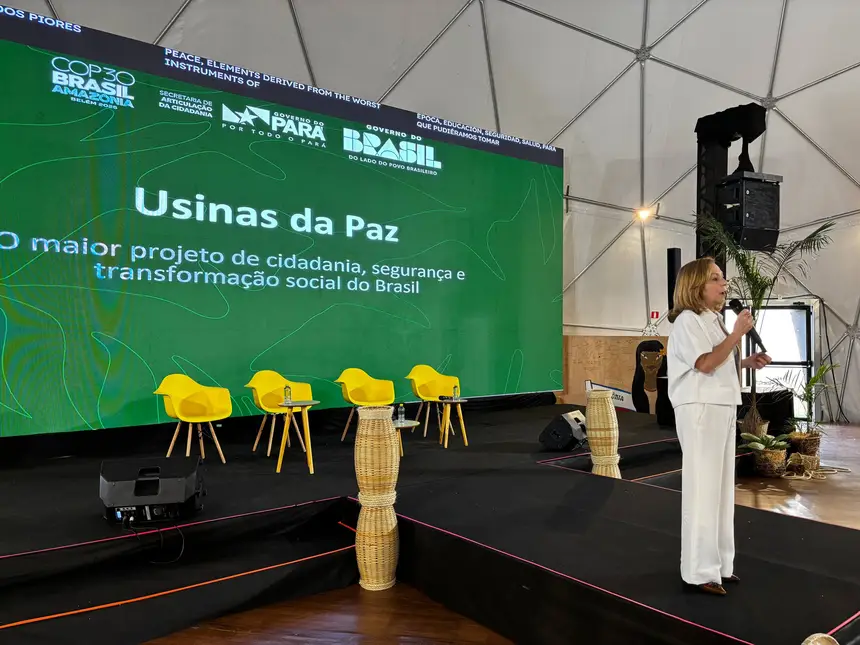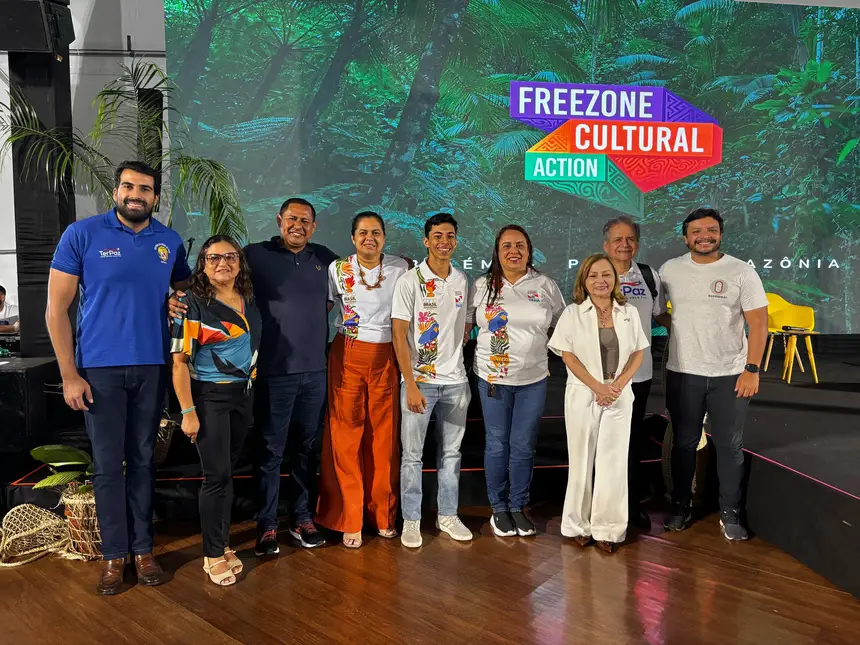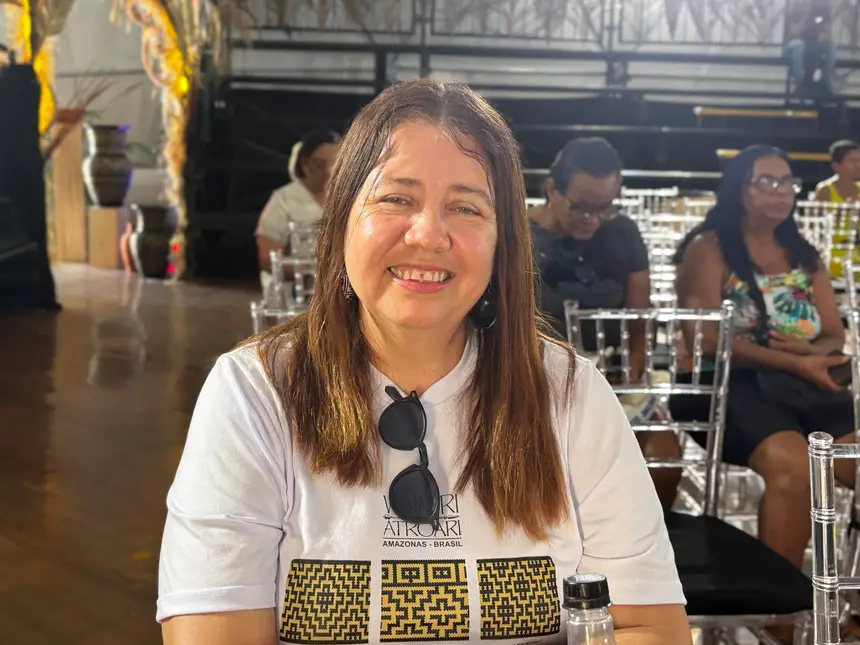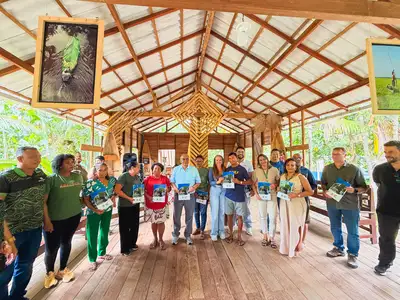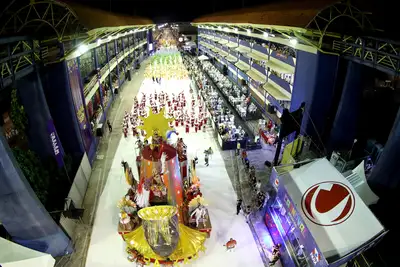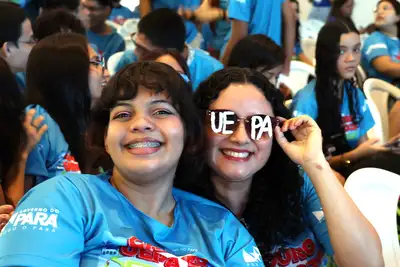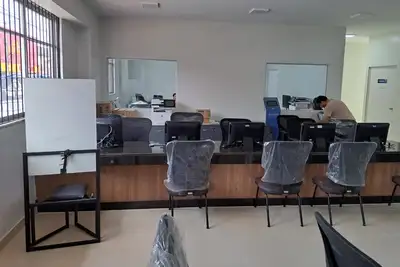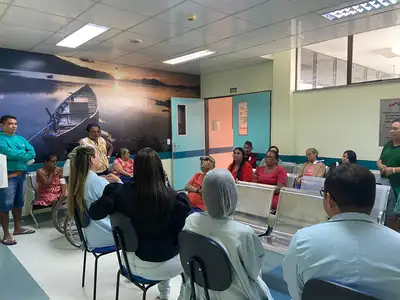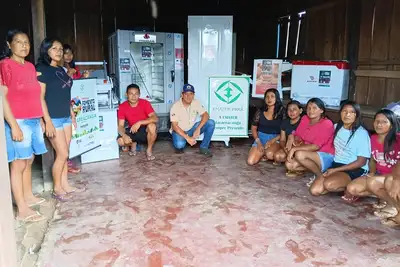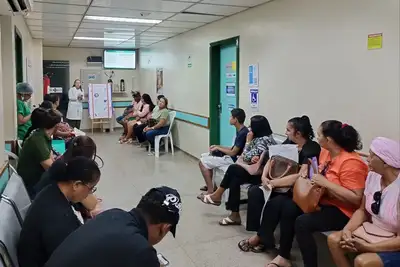In Freezone, State Government presents transformations generated by the Usinas da Paz
Panel "Territories for Peace: Public Policies and Social Inclusion in Urban Amazon" addressed the state project and social changes in neighborhoods
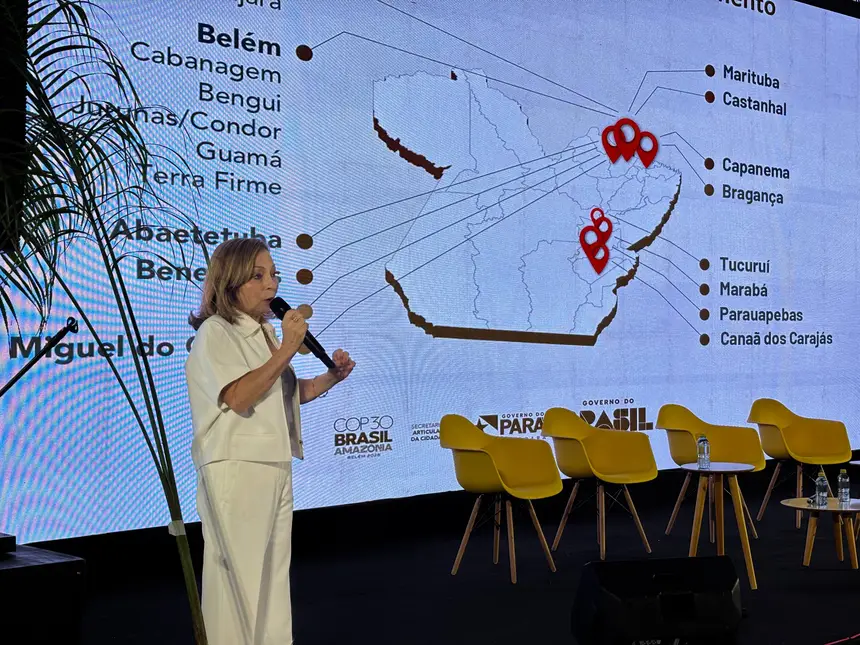
The State Government presented, this Thursday (20), the panel "Territories for Peace: Public Policies and Social Inclusion in Urban Amazon", which addressed details about the state project and the social transformations promoted by the Usinas da Paz in various communities in Pará.
The initiative was part of the Freezone program of COP30, at Praça da Bandeira, in Belém. The space, dedicated to the dissemination of innovative and sustainable initiatives, received a good audience, who had the opportunity to learn more about the integrated public policies that have generated concrete results in vulnerable territories of Pará.
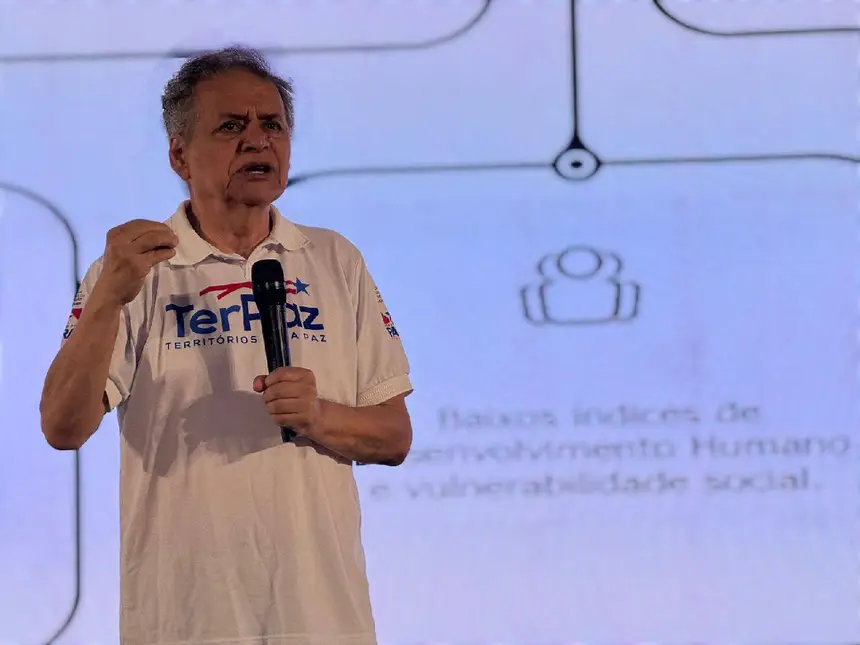
During the presentation, representatives from the Secretary of Citizenship Articulation (Seac), the agency responsible for managing the Usinas, detailed how the public facilities, implemented by the Territories for Peace Program (TerPaz), have expanded access to rights, reduced violence indicators, strengthened community ties, and created new opportunities for thousands of families.
In addition to the head of Seac, Elieth Braga, the program included the director of the Usinas da Paz, Ivanilda Vieira; the director of the Articulation and Institutional Relations Center (NARI), Júlio Alejandro Jelvez; and the doctoral student and professor at the University of the Amazon, Marisa Elenice Silva Lima.
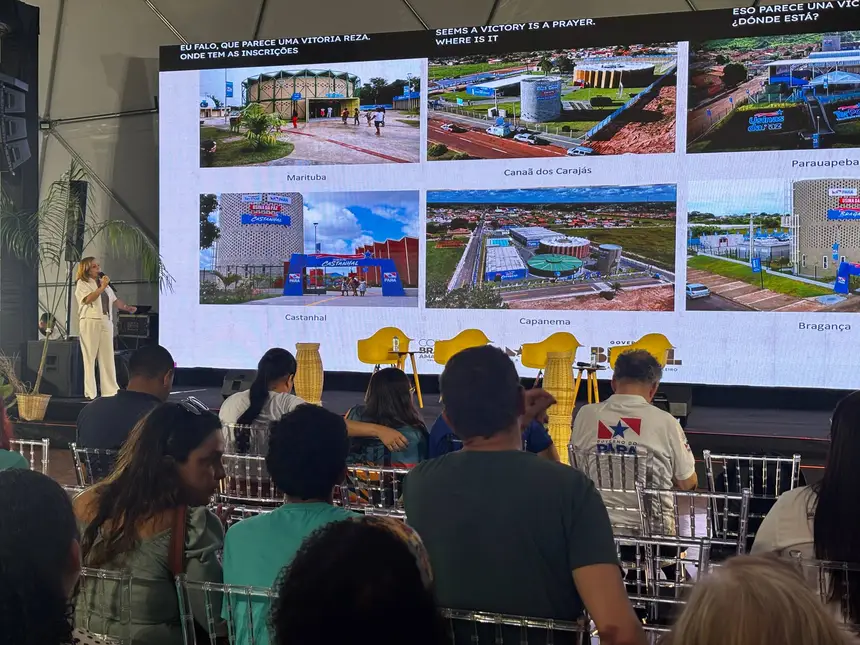
“COP30 is a space where the planet gathers to discuss the future, sustainability, and social justice. Bringing the Usinas da Paz into this scenario is to show that integrated public policies can profoundly and durably transform realities. By presenting this project, we are sharing not only a successful initiative but a possible path for other territories to also promote citizenship, inclusion, and hope,” declared the State Secretary, Elieth Braga.
Usinas da Paz — These are citizenship complexes implemented by the Government of Pará with the aim of promoting social inclusion, reducing violence, and improving the quality of life of the population in vulnerable areas. The project is part of the Territories for Peace Program (TerPaz) and, since October 2021, when the first Usina was delivered, has already guaranteed more than 10.9 million services in various regions of the State.
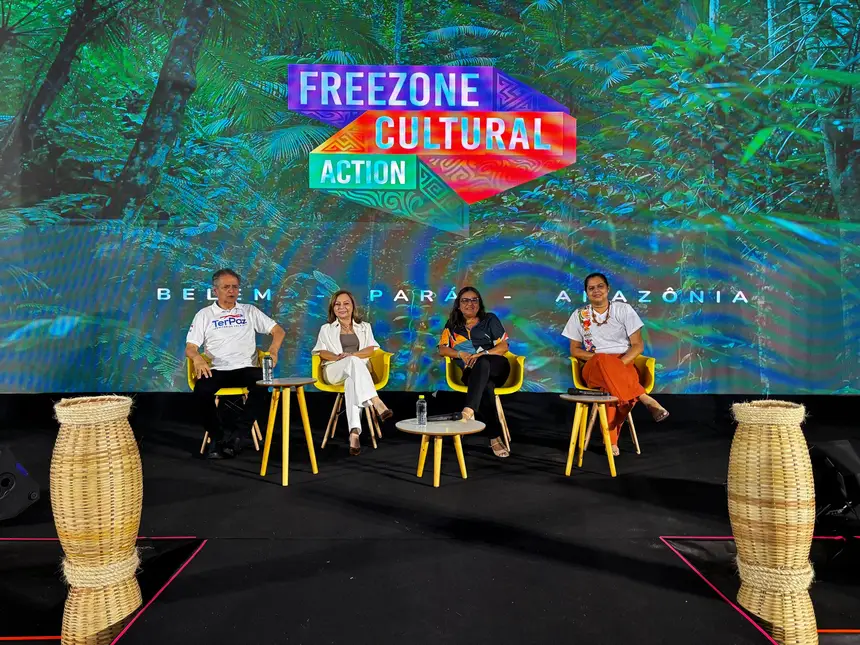
Each complex has a modern and functional structure, offering more than 70 free services to communities in areas such as health, education, sports and leisure, professional training, arts and culture, digital inclusion, and activities focused on sustainability and entrepreneurship.
Currently, 18 Usinas da Paz are in operation: five in the capital (Jurunas/Condor, Guamá, Terra Firme, Bengui, and Cabanagem) and another 13 in municipalities of the Metropolitan Region of Belém and the interior — Ananindeua, Marituba, Benevides, Castanhal, Capanema, Moju, Bragança, São Miguel do Guamá, Abaetetuba, Tucuruí, Marabá, Parauapebas, and Canaã dos Carajás. By the end of 2026, the state goal is to reach the mark of 40 Usinas in operation in Pará.
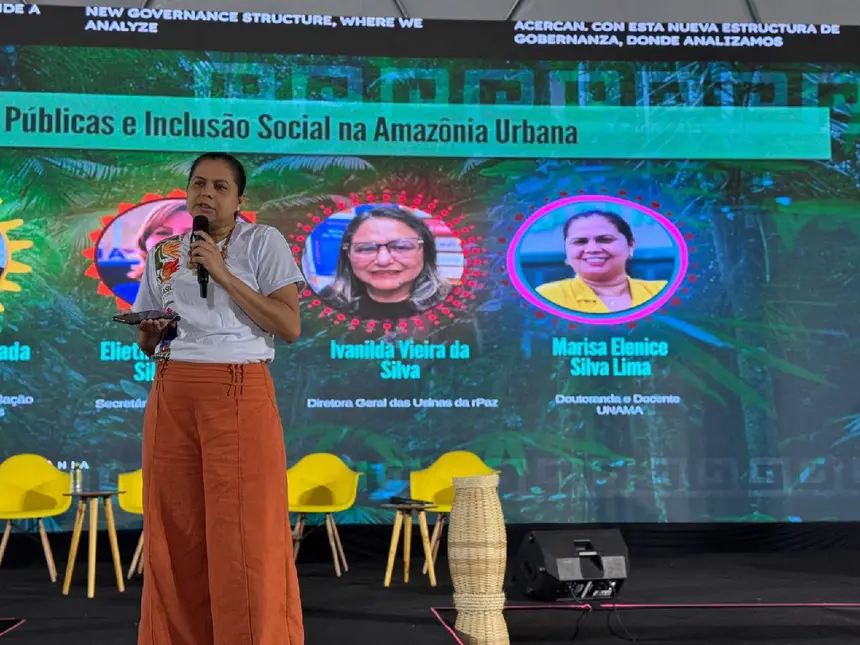
Work that inspires
The professor at the University of the Amazon, Marisa Elenice Silva Lima, researches the transformations generated by the Usinas da Paz, within the TerPaz Program, in her doctoral thesis. For her, it is an unprecedented model that combines public safety, social inclusion, and rights guarantee.
“I chose to talk about TerPaz and the Usinas in my thesis because I understand it is an unprecedented model. No other program in the area of public safety, or in any other area, brings a governance structure like TerPaz. The goal of the thesis is to show that this is a model that can be replicated in other places, not only in Brazil but even in other countries,” stated the researcher.
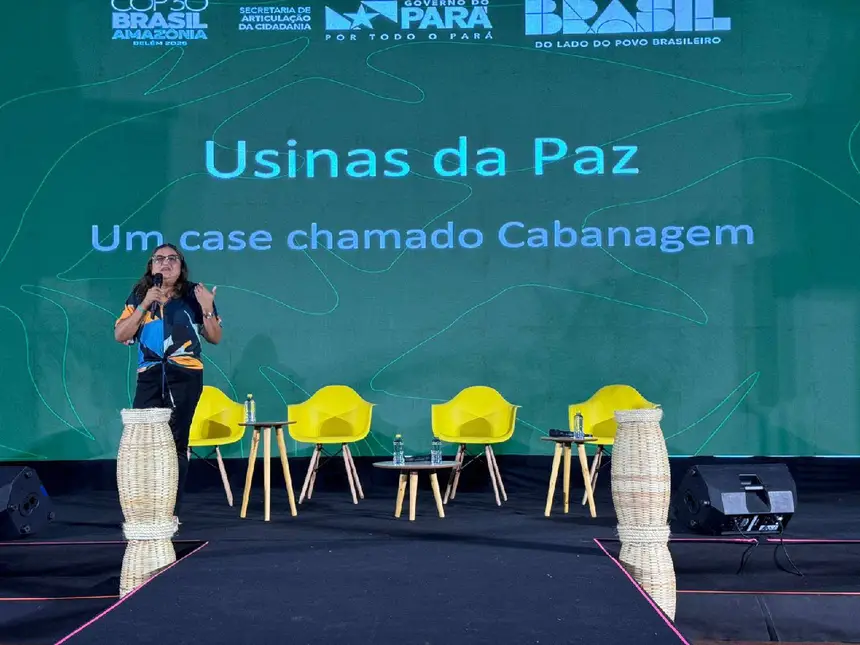
For the audience, the event was an excellent opportunity to learn more about the work done in each territory through the Usinas da Paz, as highlighted by student Miriam Nogueira.
“I did not have a full understanding of the project, but today I was able to become aware and found it wonderful. It is an inclusion project that brings many benefits to society, where everyone can feel they belong. I honestly loved what I learned today about the Usina da Paz. The Government deserves congratulations for the project,” she declared.



